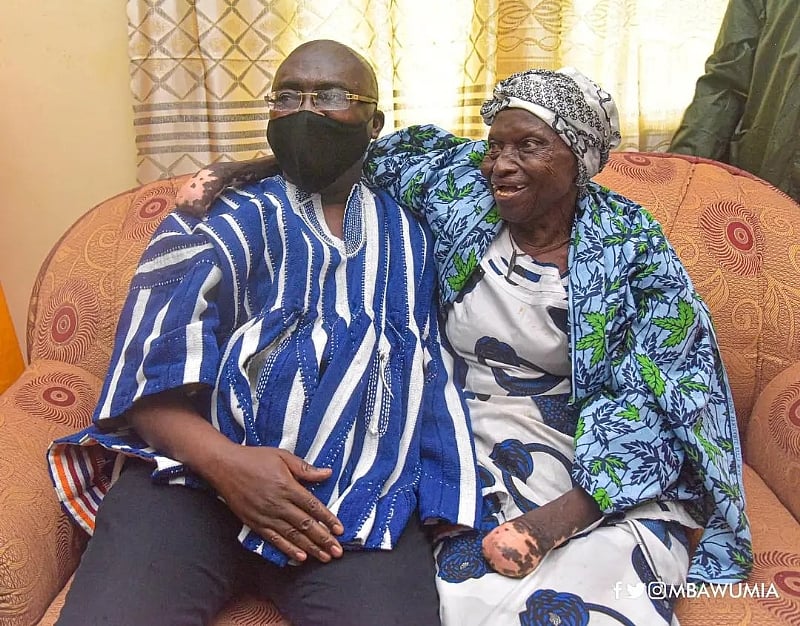Nana Boakye Akuamoah Boateng II, the Omanhene of Akomadan, recently expressed deep admiration for Vice President Dr. Mahamudu Bawumia during his visit to the Offinso North Constituency. The chief highlighted a poignant incident from four years ago that profoundly impacted him, which involved the Vice President’s charitable intervention for an elderly leper. After a documentary showcased the dire conditions under which the 82-year-old woman lived with her granddaughter in a deteriorating mud house, Dr. Bawumia took immediate action. He committed to building a new home for her in the Motori area of Wa West, in the Upper West Region, inspiring Nana Boateng to shed tears as he witnessed such altruism firsthand.
Reflecting on Dr. Bawumia’s generous acts, the Omanhene expressed how this specific contribution encapsulated the Vice President’s character and dedication to the less fortunate. “This woman was abandoned, living in a dilapidated building,” he recounted, emphasizing the significance of the intervention. The emotional weight of such compassion, according to Nana Boateng, highlighted Dr. Bawumia’s leadership qualities, prompting him to declare, “this is a leader.” The Vice President’s willingness to address the needs of vulnerable individuals left a lasting impression on the chief, underscoring the importance of empathy in governance.
Moreover, Nana Boateng noted Dr. Bawumia’s consistent tradition of engaging with leper communities during his birthday celebrations. Instead of hosting lavish parties for himself, the Vice President chooses to share meals and moments of joy with those afflicted by leprosy. The chief reflected on this practice, stating, “What kind of a man is this? Such kindness is rare.” This aspect of Bawumia’s character distinguishes him, revealing a leader who practices humility and selflessness, particularly toward those who often exist on the margins of society.
The Akomadan Omanhene’s praise extended beyond mere anecdotes. He painted a picture of Dr. Bawumia as a visionary and compassionate leader, capable of empathizing with the struggles of the less fortunate. In his concluding remarks, Nana Boateng urged, “You are a kind and compassionate man who ought to lead this country.” This endorsement reinforces the collective sentiment among community leaders about the importance of integrity and compassion in governance, especially in times of increasing societal challenges.
Furthermore, Nana Boateng’s testimonials serve as a reminder of the impact that personal actions by public figures can have on their reputation and the community’s perception of their leadership. In a landscape often marred by political apathy and self-interest, Dr. Bawumia’s demonstrated commitment to humanitarian causes stands out as an important contrasting narrative. Such acts not only forge personal connections with constituents but also create a legacy of service and compassion that resonates deeper than political rhetoric or promises.
In summary, the reflections shared by the Omanhene of Akomadan encapsulate a profound appreciation for the Vice President’s character, emphasizing Dr. Bawumia’s compassion, generosity, and commitment to serving the underprivileged. His actions serve as an inspirational example of how leadership rooted in empathy can positively influence lives and tighten community bonds. As Ghana navigates its socio-political landscape, the call for leaders like Dr. Bawumia—who prioritize the welfare of the needy—becomes increasingly significant, promoting a vision for a leadership style that aligns closely with the values of kindness and social responsibility.














